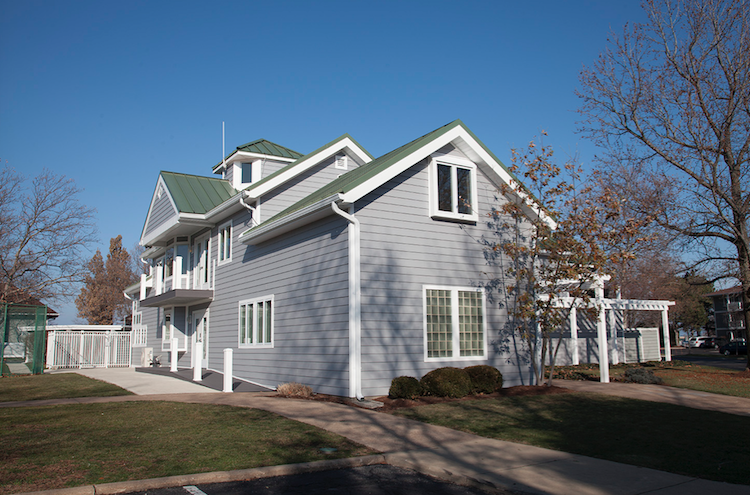The Harbour, a 188-unity luxury condo community on the shores of Lake Erie, in Sandusky, Ohio, got belted with hailstorms in 2008 and 2010. The cedar siding on many of the buildings was unrepairable and unsightly. The homeowner association contracted Mid Ohio Improvements to replace the cedar with Everlast Advanced Composite Siding in Seaside Gray. The color is inherent in the composition of the panels, so painting is never required.
Everlast is produced from a proprietary formulation of inorganic minerals, polymeric resins, and acrylic colorants. Unlike other siding products on the market, the color is inherent in its composition—not painted on—which means that the siding will never need to be re-painted, and will remain beautiful for the lifetime of the building.
“For the past 17 years, the biggest problem we’ve had on the property is the cedar siding,” says Bob Morrow, Property Manager. “By putting this product on our buildings, it alleviates the problem with the maintenance of having to repaint every four or five years.”
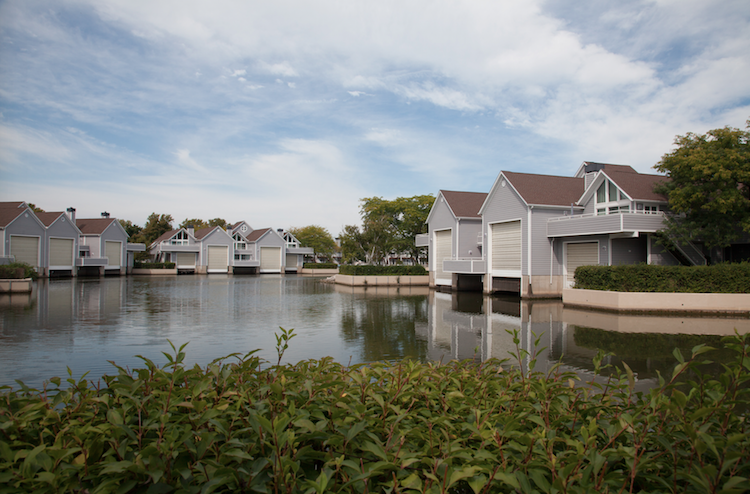
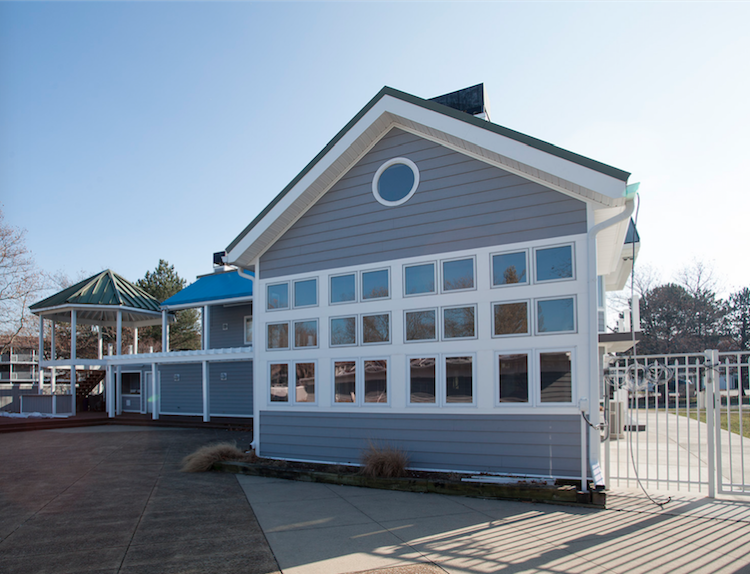
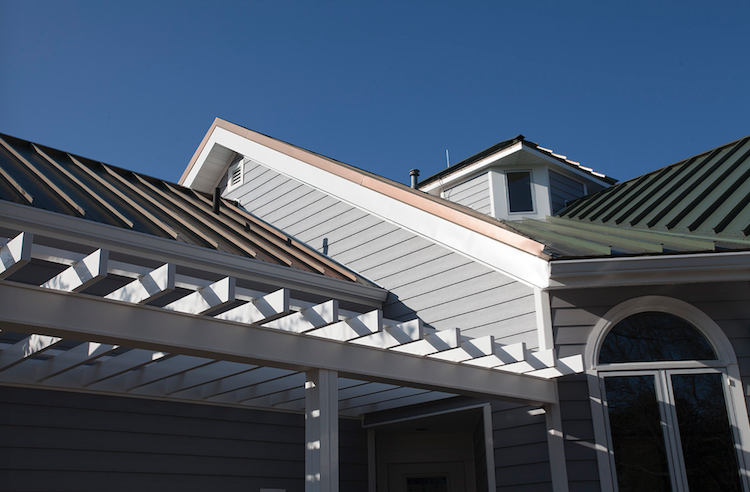
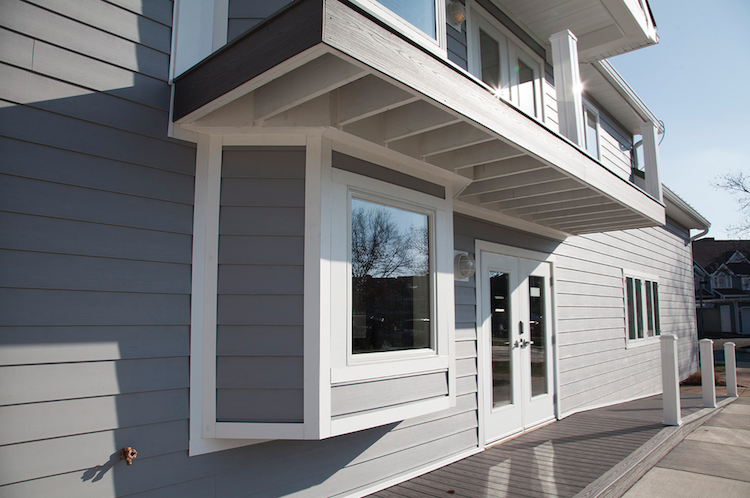
Related Stories
| Aug 11, 2010
ICC launches green construction code initiative for commercial buildings
The International Code Council has launched its International Green Construction Code (IGCC) initiative, which will aim to reduce energy usage and the carbon footprint of commercial buildings.Entitled “IGCC: Safe and Sustainable By the Book,” the initiative is committed to develop a model code focused on new and existing commercial buildings. It will focus on building design and performance.
| Aug 11, 2010
VA San Diego Healthcare System Building 1 Seismic Correction
San Diego, Calif.
Three decades after its original construction in the early 1970s, the Veterans Affairs San Diego Healthcare System Building 1 fell far short of current seismic codes. This not only put the building and its occupants—patients, doctors, nurses, visitors, and administrative staff—at risk in the event of a major earthquake, it violated a California state mandate requiring all hospitals to either retrofit or rebuild.
| Aug 11, 2010
Green Building Initiative launches two certification programs for green building professionals
The Green Building Initiative® (GBI), one of the nation’s leading green building organizations and exclusive provider of the Green Globes green building certification in the United States, today announced the availability of two new personnel certification programs for green building practitioners: Green Globes Professional (GGP) and Green Globes Assessor (GGA).
| Aug 11, 2010
Potomac Valley Brick launches brick design competition with $10,000 grand prize
Potomac Valley Brick presents Brick-stainable: Re-Thinking Brick a design competition seeking integrative solutions for a building using clay masonry units (brick) as a primary material.
| Aug 11, 2010
AGC: No recovery yet for construction industry as latest figures show double-digit drops in spending compared to last year
The construction industry continues to suffer from significant declines in privately-funded construction investments, with new federal figures showing private construction investments declined by 20.6 percent between September 2008 and September 2009. The new Census Bureau figures show there’s no sign of an economic recovery yet for the nation’s construction industry, the Associated General Contractors of America noted today.
| Aug 11, 2010
HDR, Perkins+Will top BD+C's ranking of the nation's 100 largest healthcare design firms
A ranking of the Top 100 Healthcare Design Firms based on Building Design+Construction's 2009 Giants 300 survey. For more Giants 300 rankings, visit http://www.BDCnetwork.com/Giants
| Aug 11, 2010
Steel Joist Institute announces 2009 Design Awards
The Steel Joist Institute is now accepting entries for its 2009 Design Awards. The winning entries will be announced in November 2009 and the company with the winning project in each category will be awarded a $2,000 scholarship in its name to a school of its choice for an engineering student.
| Aug 11, 2010
Southern Pine Council releases certification survey results
Recent surveys conducted by the Southern Forest Products Association (SFPA) and Random Lengths assessed the use of forest certification programs in the wood products industry and uncovered interesting results, including the fact that approximately 61% do not use a certification system and that about 60% of southern pine producers receive regular requests for certified products.


